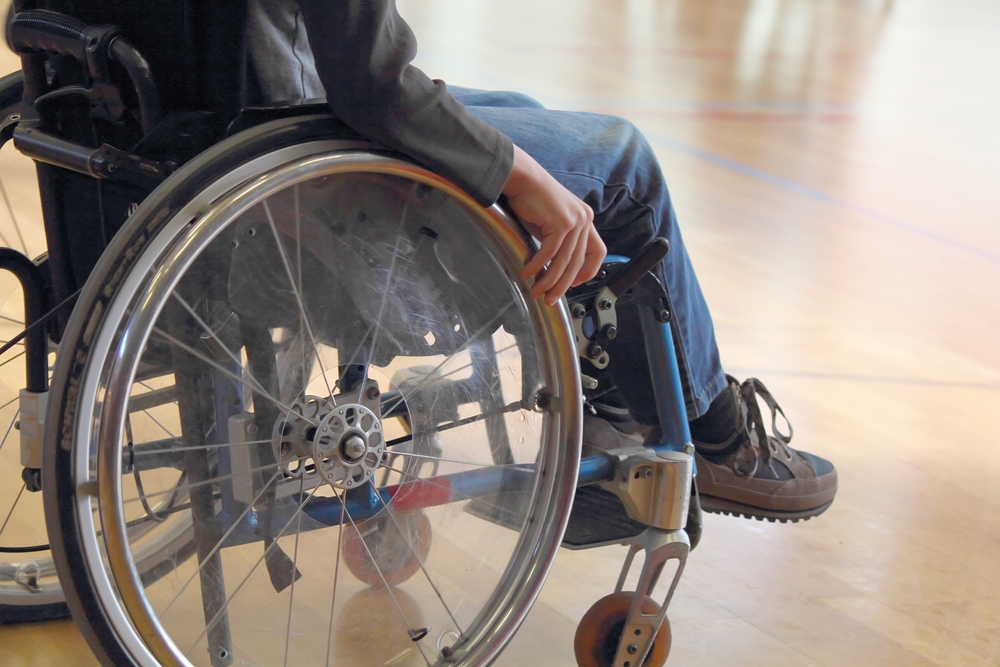The Most-Asked Question when Strangers See Me

Living with SMA or any kind of visible disability means that numerous awkward conversations inevitably will occur. It’s simply one of the things that happens when you’re in a wheelchair, especially when talking with kids or really, really dumb adults. Yet with all the odd comments and questions about my chair or service dog I’ve received over the years, the most infamous is this:
What happened?
I typically only get this question from kids, and while it used to annoy me to no end, I find myself now more understanding of them. Average able-bodied kids probably don’t encounter too many wheelchairs in their daily lives, so when they do it will instantly lead them to numerous questions. They’re just as curious about the world around them as I was at that age, and it’s good for them to ask questions to educate themselves.
The problem, however, is that the question they ask illustrates how we as a society have failed to provide proper disability education. By asking me “what happened,” children assume that I am in a wheelchair because of some sort of accident. They instantly assume that I’m a paralytic, not even thinking about the possibility that I was born this way. And, really, who can blame them? If a disabled character appears in mainstream media, he or she is almost always a paralytic. Just look at movies like “Me Before You,” “Avatar,“ or even comic book characters like Daredevil and Oracle. Some of these are great representations of disability, but they remain laser-focused on one particular category of disability.
Don’t think that kids don’t notice this. If the only disabled characters they see in TV shows and movies are people who had something tragic happen that put them in a wheelchair, they’re going to assume that the same is true of real-life people in wheelchairs they meet.
I used to shy away from kids if they asked me a question like this, or their parents would drag them away from me and apologize for bothering me. Now, however, I welcome these encounters as opportunities to educate these kids about my condition. I’m also encouraged by the increasing number of disabled voices online and in popular culture. The ABC show “Speechless” is far more reflective of my life than any other sitcom I can think of, and I’m also a big fan of comedian Josh Blue, who uses observational humor to talk about his life with cerebral palsy.
Now is the time for us to tell our stories and educate the public about the vast number of physical and mental disabilities out there. If we want to reduce stigmas about disability and hear the “what happened” question less, let’s be more open about talking about our lives and all the complexities that come with them.
While we’re talking, though kids say plenty of crazy things, here are some comments that adults should stop saying when meeting someone in a wheelchair or with a service dog. I know you think you’re funny or nice when you say these things, but you’re not and we make fun of you for it.
“Hey, kid, you got a license for that thing?”
“Wow, you’re a great driver!”
“That’s a good buddy you have with you.”
“Let me know if you need anything!”
“Ooh, don’t run me over with that thing!”
“Don’t go popping any wheelies.”
***
Note: SMA News Today is strictly a news and information website about the disease. It does not provide medical advice, diagnosis, or treatment. This content is not intended to be a substitute for professional medical advice, diagnosis, or treatment. Always seek the advice of your physician or other qualified health provider with any questions you may have regarding a medical condition. Never disregard professional medical advice or delay in seeking it because of something you have read on this website. The opinions expressed in this column are not those of SMA News Today, or its parent company, Bionews Services, and are intended to spark discussion about issues pertaining to spinal muscular atrophy.









Leave a comment
Fill in the required fields to post. Your email address will not be published.